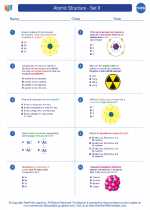Chromatography
Chromatography is a laboratory technique used to separate mixtures into their individual components. It is widely used in chemistry and biochemistry for the purification and analysis of compounds. The principle behind chromatography is the differential affinities of the components of a mixture for a stationary phase and a mobile phase.
Types of Chromatography
There are several types of chromatography, including:
- Thin Layer Chromatography (TLC): In TLC, the stationary phase is a thin layer of adsorbent material (such as silica gel) on a glass or plastic plate. The mobile phase is a solvent that moves through the stationary phase, separating the mixture into its components based on their different affinities for the stationary and mobile phases.
- Gas Chromatography (GC): GC is used to separate volatile compounds. The stationary phase is a high-boiling liquid coated on a solid support inside a column, and the mobile phase is an inert gas. The components of the mixture are separated based on their different volatilities and affinities for the stationary phase.
- Liquid Chromatography (LC): LC is a broad category of chromatographic techniques that use a liquid mobile phase. One common type is High Performance Liquid Chromatography (HPLC), which is widely used for separating and quantifying components of a mixture.
Principle of Chromatography
The basic principle of chromatography is that the mixture to be separated is dissolved in a fluid (the mobile phase) and passed over a material (the stationary phase) that retains the components of the mixture to different extents. As the mobile phase moves over the stationary phase, the components of the mixture separate based on their affinities for the two phases.
Applications of Chromatography
Chromatography has a wide range of applications, including:
- Analysis of complex mixtures, such as environmental samples, food products, and pharmaceuticals
- Purification of compounds for research and industrial processes
- Determination of the purity of a substance
- Separation and analysis of biomolecules, such as proteins, nucleic acids, and carbohydrates
Study Guide
To understand chromatography better, it's important to focus on the following key points:
- Understand the principles of the stationary phase and mobile phase in chromatography.
- Learn about the different types of chromatography and their applications.
- Study the factors that influence the separation of components in chromatography, such as polarity, size, and solubility.
- Practice interpreting chromatograms and understanding how to identify and quantify the components of a mixture.
- Explore the latest advancements and developments in chromatography technology and its impact on various scientific fields.
By mastering these key points, you'll develop a solid understanding of chromatography and its significance in the field of chemistry and beyond.
.◂Chemistry Worksheets and Study Guides High School. Atomic Structure - Set II

 Worksheet/Answer key
Worksheet/Answer key
 Worksheet/Answer key
Worksheet/Answer key
